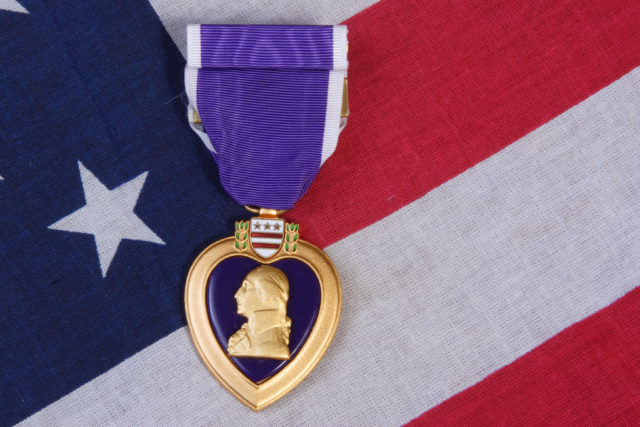In small towns and big cities across our country, Americans recently gathered to commemorate Memorial Day and honor those who died in the service of our country. This solemn day of gratitude allows us to reflect on the fact that our freedom is a gift purchased at the greatest possible price.
And while we thank our men and women in uniform for their sacrifices and contributions, we also thank the families – the husbands and wives, sons and daughters, brothers and sisters, and mothers and fathers – who endure the separation, the anxiety, and, at times, the grief that are also part of freedom’s price.
There is no more powerful symbol of the sacrifices made by members of the armed services than the Purple Heart. The men and women who put themselves in harm’s way, and who carry the wounds of battle, along with the loved ones who care for them, deserve our deepest respect.
The Purple Heart’s history goes as far back as the founding of our nation. General George Washington established what is now known as the Purple Heart Medal when he issued an order establishing the Military Badge of Merit on August 7, 1782. General Washington wanted the award to be used to recognize meritorious action performed by members of the Continental Army, and it took the form of a purple heart.
The Military Badge of Merit was discontinued after the Revolution and was not revived until 1932, when the Purple Heart medal was authorized as its official successor decoration. On Feb. 22, 1932, the 200th Anniversary of the birth of George Washington, then-Army Chief of Staff General Douglas MacArthur resurrected the award, and it was redesignated as the Purple Heart. Quite appropriately, this reestablished Purple Heart Medal exhibits the bust and profile of George Washington.
It is around this time that the Purple Heart became synonymous with those unfortunate heroes who were killed or wounded in combat. Since 1932, the United States military has awarded more than 1.7 million Purple Hearts.
Just as the Purple Heart Medal has held a special meaning to its millions of recipients and family members, it also has special significance to my family. My father, Don Collins, is a World War II veteran who was wounded twice during the Battle of the Bulge in Europe. He earned two Purple Hearts and the Bronze Star.
One of my earliest childhood memories is of my father taking me to the Memorial Day parade in my hometown of Caribou. He would hoist me high upon his shoulders, and there, from the best vantage point along the parade route, I would see the hats come off and the hands go over hearts as our Flag went by. It was from him that I first learned to honor and respect our veterans.
This year, I had the honor to participate in the Memorial Day ceremony in Caribou, and the spirit of patriotism and gratitude I saw growing up is still strong. Now in its 14th year, the beautiful Northern Maine Veterans Cemetery is the work of area veterans, families, and supporters working together. Two years ago, a wonderful Purple Heart Memorial was donated to Caribou Memorial Park by Cary Medical Center.
The Purple Heart is a reminder that freedom is a gift purchased at the greatest possible price. It is vitally important for all Americans to learn the history of this important military award and understand and honor the sacrifices of the many men and women in uniform who have earned the Purple Heart.








